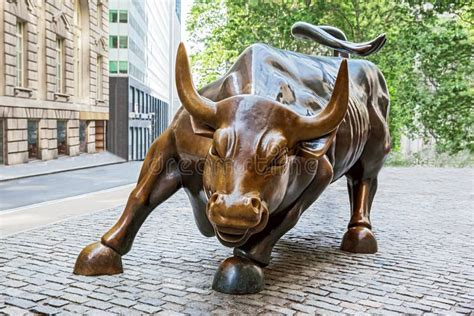New Haven has always been an Italian town since immigrants first arrived there from Amalfi and Sorrento in the late 1800s. Wooster Square was the epicenter of the new generation of New Englanders, and new arrivals never had to speak a word of English. Butchers, bakers, and greengrocers all spoke Italian, and residents never had to venture beyond Olive and Grand Streets for anything. The police were never called - all disputes were settled internally - childbirth was always at home, and serious illness simply took its course.
The new arrivals found work in the many factories of the city - guns, locks, metalworks, tools, and hardware. Their children swept barber shop floors, ran errands, shucked oysters, and cleaned the muck from gutted fish on the wharf. School was a luxury that few could afford and few attended.
The Mafia of course was an important institution on Wooster Square. Serious disputes were settled by them, money was lent in return for favors, peace kept between landlords and renters, and the Irish police, judges, and prosecutors kept at bay thanks to generous remembrances at Christmas and a few unpleasant visits to chambers.
In the early days of the new century as the demand for foreign labor increased, ships sailing between Naples and New York were filled with families from Vico Equense, San Moreno, and Cabrini Agricola, all of whom said farewell to the aunts, uncles and cousins they would never see again, and looked to l'America for their fortune.
Don Cicci, the Mafia boss of Wooster Square in the 1960s, had risen in the ranks of La Cosa Nostra, and although he maintained his allegiances to the Italian community there, his business ventures extended far beyond. Thanks to his timely help with the dock worker strikes in 1955, he was given 'adjunct' membership to the Bonanno family and then full partnership a few years later. He spent most of his time at his New York brownstone with a young dancer from Bari whose position as a Rockette was thanks to him and his friendship with the manager of the troupe.
Yale University of course needs no introduction. One of the oldest institutions of higher education in America, established in 1701 after the vision of John Davenport, Puritan minister and founder of the New Haven Plantation. Davenport, an original member of the Massachusetts Bay Colony had become disaffected with it and set off to create a more conservative Calvinist settlement. He found the weather, the harbor, and the Indians congenial and he and the residents prospered. A few years later Yale was on the New Haven green
Yale in the 1960s was one of the richest, best endowed, and financially well-managed of all the Ivy League. 'The Vatican of North America' it was called, for like its Roman counterpart, Yale sat on billions.
All of this was not lost on Don Cicci who saw in the credulous, patrician Yankees a goldmine. Why was he to spend his entire life with the goombas of Brooklyn and the capo regimes of the Five Families when he could hob nob with the nation's elite and make a fortune. Snookering these Cabots and Lodges who summered on the Vineyard and wintered in Gstaad would be a snap. Although Don Cicci smelled profits in the university's plans for campus-wide renovation and the construction of two new colleges the real money would be made on Wall Street.
Now, the town-gown relationship in those days was almost nil. Thanks to Italo-Search, an initiative undertaken by the university to recruit and admit Italian Americans to Yale one or two Wooster Square boys were chosen. 'We want Italians to eat strawberries, not just serve them', said Alderman Benito Palumbo referring to the strawberry endowment at Trumbull College eaten by Cabots and Lodges and prepared in the kitchen by Petruccis and Garaffas.
Other than that, the division between Yale and Wooster Square was as impenetrable as the Maginot Line or at least it was until Don Cicci and Harrison Putnam IV, descendant of John Davenport and Cotton Mather and an important Salem prosecutor, got together.
Putnam had fallen on hard times. Despite the family's pedigree and good intentions, it had lost millions in successive downturns of the market, bad investments, and a rather myopic look at American investment banking. Add to that Putnam's drinking problem and frequent trips to Las Vegas.
Once Don Cicci had got Harrison Putnam in his sights - intelligence on him was detailed, corroborated, and unimpeachable - and thanks to the intercession of Alderman Palumbo and the celebration of New Haven's founding to which Putnam was invited, a meeting was arranged. With all his 'guinea charm' (patrician Yale was never shy about its characterization of Italian Americans), and subtle but unmistakable offers of financial salvation, the first steps to a town-gown partnership were taken.
It is often assumed that Wall Street in those days was a fortress of patrician rectitude; and that the Enron scandals and the insider shenanigans that would lead to the financial meltdown in 2008 could never happen while the Cabots and Lodges were in charge.
Nothing of course could be further from the truth, and just as Don Cicci had identified Harrison Putnam as a weak link in an otherwise solid chain, so did his family locate an early Bernie Madoff at Bear Stearns.
This trader was a hungry little man with no pedigree, no legacy, no entitlement who had gotten onto Wall Street with chutzpah, balls, and intimidation. A rare bird in those days, but there he was, and before long Yale's money was being funneled through him into credit swaps and downstream Alabama bundled securities that later scammers could only admire.
Putnam gave a big sigh of relief as his debts disappeared, a ten-bedroom mansion was built on Gay Head to replace his Menemsha cottage, and a longer lease negotiated for his Central Park South tower condo.
He remained in New Haven, however - remote work was far in the future - and with considerable skill and financial deftness kept the university in the dark, happy with the modest rewards he had engineered, and unsuspecting of the depth and extent of the scam.
The relationship between the two men became cordial and then friendly. For the first time in his life, Putnam set foot in Wooster Square, had an espresso at Cafe Napoli, and met Angela, Leona, and Lucinda. 'Notta so bad', he joked with Don Cicci as he expressed his thanks for the money, the freedom, and the delightful company.
At the same time Don Cicci rubbed shoulders with the Vineyard's finest summer residents and met and drank with David Attenborough and Carly Simon. The whole idea of town-gown relations had been expanded far beyond the New Haven green and Wooster Square.
Both Putnam and Cicci were introduced to new worlds; and while Putnam still shot his cuffs nervously at some new Italian acquaintance of Cicci's; and while Cicci still smirked with irony when he met a Hart or a Chamberlain and listened to their stories of sailing and furniture, the match was a surprisingly good one.
The best part of it all was that no one was the wiser, and the devilishly brilliant scheme went on for years. The little greedy man made his millions and retired to Bimini. A statue of Don Cicci was erected on Wooster Square in honor of the man who had done so much for the Italian American community; and Harrison Putnam was appointed Dean of Students - a post he declined, although appreciated, for he like the little greedy man wanted to retire and enjoy his fortune.









No comments:
Post a Comment
Note: Only a member of this blog may post a comment.